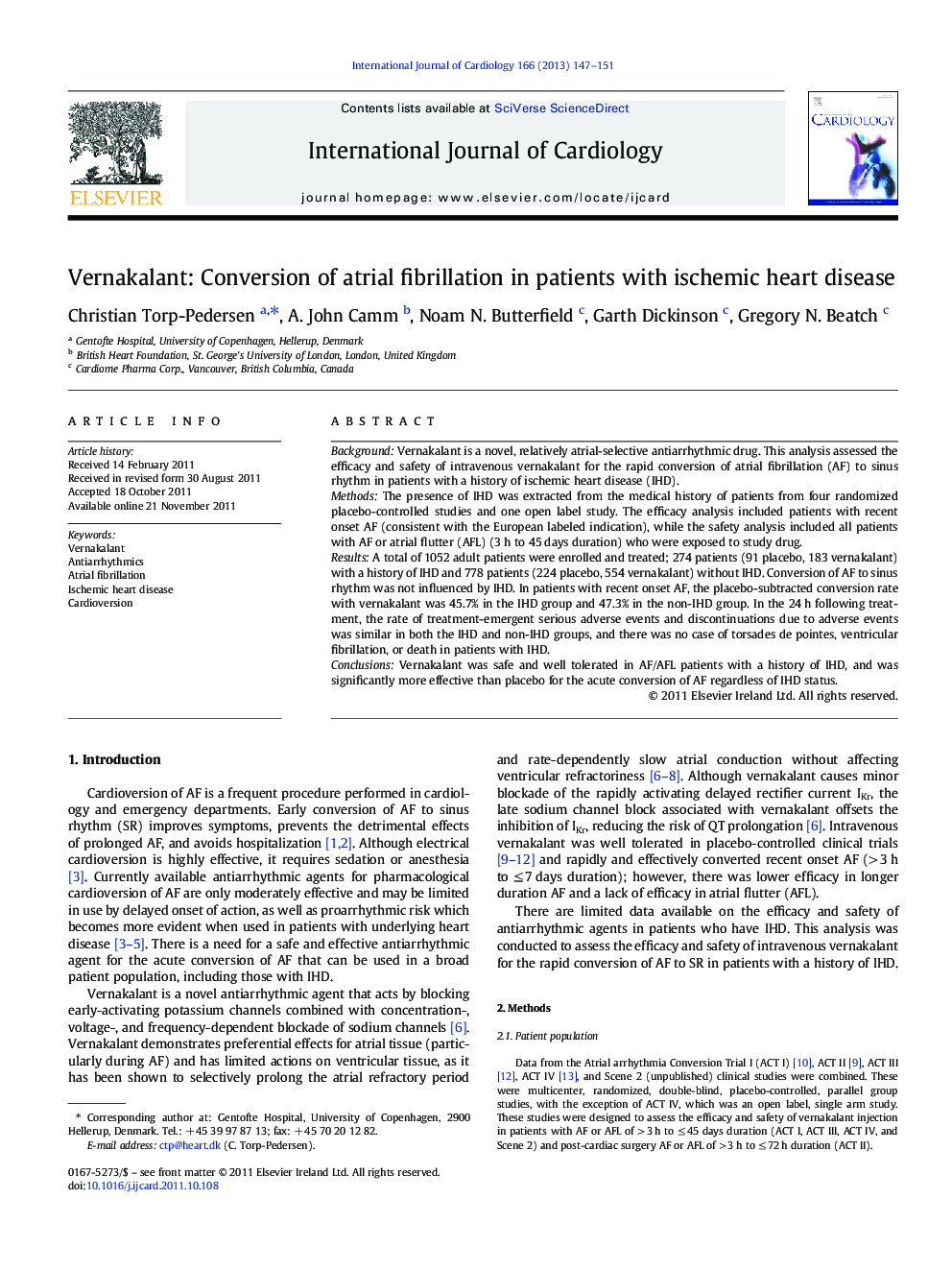| Article ID | Journal | Published Year | Pages | File Type |
|---|---|---|---|---|
| 5977397 | International Journal of Cardiology | 2013 | 5 Pages |
BackgroundVernakalant is a novel, relatively atrial-selective antiarrhythmic drug. This analysis assessed the efficacy and safety of intravenous vernakalant for the rapid conversion of atrial fibrillation (AF) to sinus rhythm in patients with a history of ischemic heart disease (IHD).MethodsThe presence of IHD was extracted from the medical history of patients from four randomized placebo-controlled studies and one open label study. The efficacy analysis included patients with recent onset AF (consistent with the European labeled indication), while the safety analysis included all patients with AF or atrial flutter (AFL) (3Â h to 45Â days duration) who were exposed to study drug.ResultsA total of 1052 adult patients were enrolled and treated; 274 patients (91 placebo, 183 vernakalant) with a history of IHD and 778 patients (224 placebo, 554 vernakalant) without IHD. Conversion of AF to sinus rhythm was not influenced by IHD. In patients with recent onset AF, the placebo-subtracted conversion rate with vernakalant was 45.7% in the IHD group and 47.3% in the non-IHD group. In the 24Â h following treatment, the rate of treatment-emergent serious adverse events and discontinuations due to adverse events was similar in both the IHD and non-IHD groups, and there was no case of torsades de pointes, ventricular fibrillation, or death in patients with IHD.ConclusionsVernakalant was safe and well tolerated in AF/AFL patients with a history of IHD, and was significantly more effective than placebo for the acute conversion of AF regardless of IHD status.
